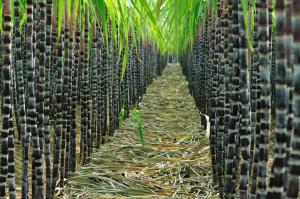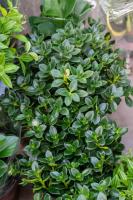Introduction
Tomatoes are a popular crop for home gardeners and commercial farmers alike. As a result, people are constantly looking for ways to improve their yield and health. One method that has gained popularity is the use of Epsom salts. But does Epsom salts really help tomato plants? In this article, we will explore the advantages and disadvantages of adding Epsom salts to tomato plants.
What are Epsom salts?
Epsom salts, also known as magnesium sulfate, are a naturally occurring mineral compound. They are made up of magnesium, sulfur, and oxygen. Epsom salts have been used for centuries as a natural remedy for numerous ailments, including constipation, muscle pain, and, more recently, in gardening.
Benefits of adding Epsom salts to tomato plants
One of the main benefits of using Epsom salts on tomato plants is their high magnesium content. Magnesium is essential for plants to photosynthesize, or convert sunlight into energy. It is also necessary for the production of chlorophyll, which gives plants their green color. By adding Epsom salts to your tomato plants, you can improve their overall health, growth, and yield.
Additionally, Epsom salts have been shown to help prevent blossom end rot. Blossom end rot is a common issue among tomato plants and is characterized by a dark, sunken spot on the bottom of the fruit. This condition is caused by a calcium deficiency in the plant. While Epsom salts do not contain calcium, they help the plant absorb the nutrient more effectively.
Disadvantages of adding Epsom salts to tomato plants
While Epsom salts can be beneficial to tomato plants in small doses, there are also downsides to using them excessively. One of the main concerns is that overuse of Epsom salts can lead to a magnesium buildup in the soil. High levels of magnesium can block the uptake of other essential nutrients, such as calcium and potassium, which can harm the plant in the long run.
Another issue with using Epsom salts is that they can be expensive, especially if you have a large garden. While there are cheaper alternatives to Epsom salts, such as using compost, seaweed extract, or coffee grounds, they may not be as effective as Epsom salts.
How to use Epsom salts on tomato plants
If you decide to use Epsom salts on your tomato plants, it is important to use them sparingly. A general guideline is to apply one tablespoon of Epsom salts per plant, once a month. It is also recommended to dilute the Epsom salts in water before applying them to the plant.
Another way to use Epsom salts is by adding them to the soil before planting your tomato seeds. This will help ensure that the plants receive the necessary nutrients right from the start.
Conclusion
Using Epsom salts on tomato plants can be a great way to improve their health, growth, and yield. However, it is important to use them in moderation to avoid any negative effects. By following the guidelines outlined in this article, you can successfully use Epsom salts on your tomato plants and enjoy a bountiful harvest.

 how many times do yo...
how many times do yo... how many planted tre...
how many planted tre... how many pine trees ...
how many pine trees ... how many pecan trees...
how many pecan trees... how many plants comp...
how many plants comp... how many plants can ...
how many plants can ... how many plants and ...
how many plants and ... how many pepper plan...
how many pepper plan...
































